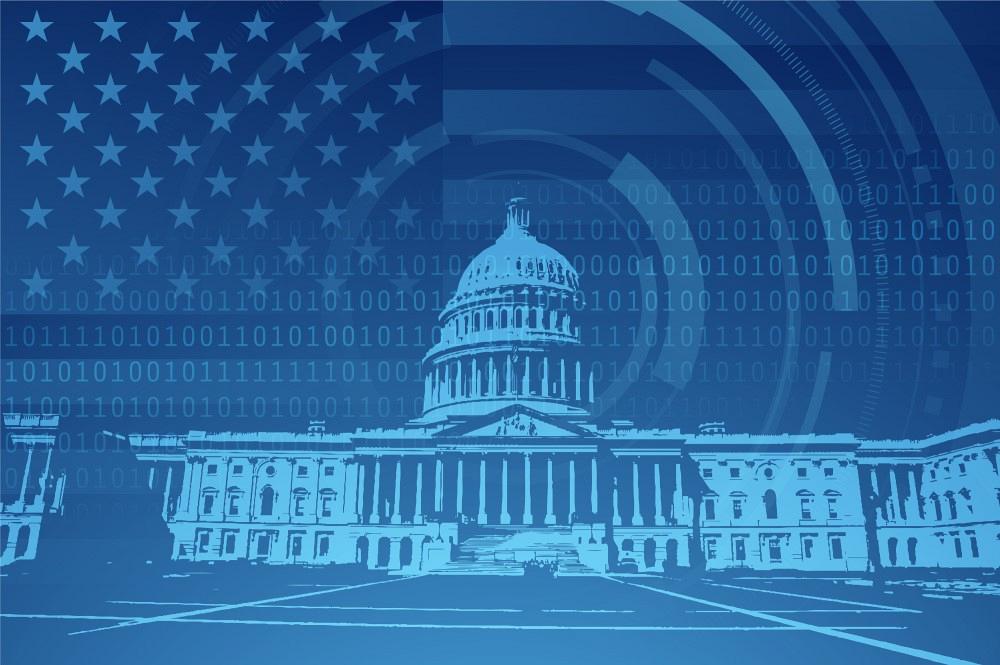Contributing editor
- FMA
- The Fabricator
- FABTECH
- Canadian Metalworking
Categories
- Additive Manufacturing
- Aluminum Welding
- Arc Welding
- Assembly and Joining
- Automation and Robotics
- Bending and Forming
- Consumables
- Cutting and Weld Prep
- Electric Vehicles
- En Español
- Finishing
- Hydroforming
- Laser Cutting
- Laser Welding
- Machining
- Manufacturing Software
- Materials Handling
- Metals/Materials
- Oxyfuel Cutting
- Plasma Cutting
- Power Tools
- Punching and Other Holemaking
- Roll Forming
- Safety
- Sawing
- Shearing
- Shop Management
- Testing and Measuring
- Tube and Pipe Fabrication
- Tube and Pipe Production
- Waterjet Cutting
Industry Directory
Webcasts
Podcasts
FAB 40
Advertise
Subscribe
Account Login
Search
FMA Annual Meeting Recap: How will Washington DC affect manufacturing?
Trade association consultant looks at impact of Democrat-controlled government to the industry
- By Kate Bachman
- March 17, 2021
Editor's Note: This is the third part of our FMA Annual Meeting Recap blog series. Check out Part 1, Part 2, Part 4, Part 5, and Part 6.
“Politics does affect your business,” said Omar S. Nashashibi in his “Manufacturing 2021: How Washington, D.C., Will Affect Your Business” presentation at the 2021 FMA Virtual Annual Meeting. He is a founding partner with The Franklin Partnership in Washington, D.C., a lobbyist and consultant for manufacturing trade associations and businesses.
“Right now the Democrats have a single-party trifecta—the president, the House, and the Senate—paving the way for major changes in policies affecting manufacturers across the country,” Nashashibi said. “One-party control really does change things,” he remarked in his presentation.
The last time that happened was in 2017 when the Republicans passed the Tax Cuts and Jobs Act, and the time before that was when the Democrats passed the Affordable Care Act, he noted.
Although President Biden has only been in office since the latter part of January, his priorities are clear and a bellwether as to which legislation and policies will be enacted, he said. They are COVID-19 relief, the environment, rebuilding infrastructure, strengthening the Made in America Act, tax rates and credits, and trade and tariffs.
“COVID is Biden’s first priority in March,” Nashashibi said, both in terms of vaccinating Americans and passing COVID relief bills. The passage of the CARES Act in March 2020 expanded eligibility for unemployment benefits, but the $300 weekly federal enhanced unemployment benefits expired on March 14. So the Biden administration pushed to get the American Rescue Plan Act of 2021, a $1.9 trillion economic aid package passed in mid-March to rescue the 11.4 million workers facing the so-called jobless benefit cliff, he said.
“Clearly, the environment and climate change is a top priority for the Biden administration,” Nashashibi said. Biden re-entered the U.S. in the Paris Climate Accord immediately after his inauguration.
During Biden’s presidency, agencies are expected to review environmental rules and regulations. Also, regulation freezes will thaw.
Greenhouse gas emissions will be a large concern. Zero-emission vehicles will be in place by 2035, by government requirements or the market may move in that direction itself, he said, pointing to California Gov. Newsom’s zero emissions by 2035 executive order and GM’s zero emissions on light-duty vehicles by 2035.
OSHA guidance will form the basis for safety regulations. By March, temporary requirements were leaning to permanent, he said.
Infrastructure is one of Biden’s top priorities, Nashashibi said. “On deck is infrastructure. Biden is pushing to allocate $1 trillion to $3 trillion for rebuilding highways, bridges, water, and transportation.” He said that speculation is that Biden believes the U.S. may be facing another Great Depression and the country needs the stimulus to keep the economy going.
“Infrastructure has bipartisan support, for now,” he said. “But we’re going to have to pay for this debt. Then bipartisan support will fall apart. Taxes and user fees will have to go up. You are going to see tax increases taking effect in 2022.”
Nashashibi said the corporate tax rate is not likely to increase to 35%; it will probably cap at 28%. Manufacturers that pay pass-through taxes are looking at closer to a 25% tax rate. In addition, the Department of the Treasury is working on a minimum corporate tax rate of 15%, he said. “They don’t want big corporations paying just 5% anymore.”
subscribe now

The Fabricator is North America's leading magazine for the metal forming and fabricating industry. The magazine delivers the news, technical articles, and case histories that enable fabricators to do their jobs more efficiently. The Fabricator has served the industry since 1970.
start your free subscriptionAbout the Author

Kate Bachman
815-381-1302
Kate Bachman is a contributing editor for The FABRICATOR editor. Bachman has more than 20 years of experience as a writer and editor in the manufacturing and other industries.
- Stay connected from anywhere

Easily access valuable industry resources now with full access to the digital edition of The Fabricator.

Easily access valuable industry resources now with full access to the digital edition of The Welder.

Easily access valuable industry resources now with full access to the digital edition of The Tube and Pipe Journal.
- Podcasting
- Podcast:
- The Fabricator Podcast
- Published:
- 04/16/2024
- Running Time:
- 63:29
In this episode of The Fabricator Podcast, Caleb Chamberlain, co-founder and CEO of OSH Cut, discusses his company’s...
- Trending Articles
Tips for creating sheet metal tubes with perforations

JM Steel triples capacity for solar energy projects at Pennsylvania facility

Are two heads better than one in fiber laser cutting?

Supporting the metal fabricating industry through FMA

Omco Solar opens second Alabama manufacturing facility

- Industry Events
16th Annual Safety Conference
- April 30 - May 1, 2024
- Elgin,
Pipe and Tube Conference
- May 21 - 22, 2024
- Omaha, NE
World-Class Roll Forming Workshop
- June 5 - 6, 2024
- Louisville, KY
Advanced Laser Application Workshop
- June 25 - 27, 2024
- Novi, MI




























